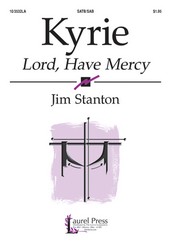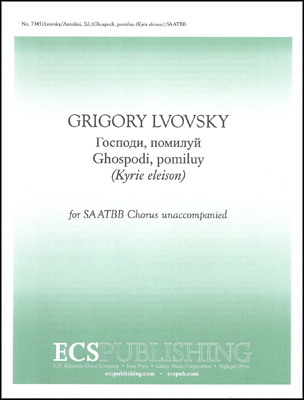- |
User Links
Kyrie Eleison (Lord, Have Mercy)
Hymn Information
- First Line
- Kyrie eleison (Lord, have mercy)
- Text Source
- early Greek Liturgy
- Tune Name
- KYRIE GHANA
- Composer
- Dinah Reindorf, b. 1938
- Tune Source
- Ghana · arr. Faith Alive Christian Resources
- Topic
- Responses: To Confession · Elements of Worship: Confession
Copyright Information
- Text Copyright
- Public Domain
- Tune Copyright
- music © 1987 Dinah Reindorf · arr. © 2001 Dinah Reindorf
- Reprint/Projection Information
- Words: The Words are in the Public Domain; you do not need permission to project or reprint the Words.
- Music: Please contact the copyright holder for permission.
Full Text
Scripture References
- · · · · · · · · · ·
Confessions and Statements of Faith References
Further Reflections on Confessions and Statements of Faith References
God’s children are not called to come before God’s throne with a list of accomplishments, or merits or goodness; they are called, says Our World Belongs to God, paragraph 26, to come with the humility that “…offers nothing but our need for mercy.” Such a cry for mercy comes from our “dying-away of the old self” (Heidelberg Catechism, Lord’s Day 33, Question and Answer 88) which expresses that we are “genuinely sorry for our sin and more and more…hate and run away from it” (Heidelberg Catechism, Lord’s Day 33, Question and Answer 89).
The gifts of renewal and pardon come only “through true faith” (Heidelberg Catechism, Lord’s Day 7, Question and Answer 20) and are “gifts of sheer grace, granted solely by Christ’s merits” (Heidelberg Catechism, Lord’s Day 7, Question and Answer 21). The very act of faith is to plead for his mercy.
Kyrie Eleison (Lord, Have Mercy)
Additional Prayers
Kyrie Eleison (Lord, Have Mercy)
Hymn Story/Background
would be very appropriate to sing responsorially with the reading of Psalm 51, at the beginning, and after different sections of the psalm. Keep the tempo a slow, steady walking pace, and don’t rush the triplet and “blue” note (G-flat) in the last bar. Percussion is critical. Use a djembe (an African hand drum) with a strong, deep sound on the first beat (as if beating one’s breast in sorrow), and quarter or eighth notes on the other beats. Consider performing it either in unison, or with women singing the melody and men humming the simple accompaniment prepared by Emily R. Brink as published earlier in Sing! A New Creation (2001). The drumming and humming could continue by a choir underneath the reading. Another accompaniment by Dinah Reindorf is also available in that collection.


 My Starred Hymns
My Starred Hymns






